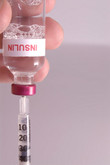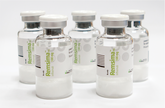Biosimilars/Research
Efficacy of filgrastim biosimilars following stem-cell transplantation
The efficacy of granulocyte colony-stimulating factor (G-CSF; filgrastim) biosimilars has been assessed in terms of engraftment following stem-cell transplantation. Time to engraftment was compared following treatment with the originator, Neupogen (Amgen), and with biosimilars in a retrospective, single-institution study.
Approval of biosimilar insulins: regulations across the globe
Insulin analogue patent expiry is likely to mean that biosimilars will be submitted for licensing. In light of this, Heinemann and co-authors reviewed regulatory requirements for biosimilars, notably insulin, in several regions and countries [1].
Norway, biosimilars in different funding systems
Norway has approved biosimilar versions of the biologicals somatropin, epoetin, filgrastim and infliximab. Epoetin and filgrastim are included in a national tender for drugs used in hospitals, in which prices can be reduced by up to 89%. Regional health care is responsible for funding drugs used in hospitals and at home, and it is their responsibility for obtaining the best prices. The H-prescription system in Norway works best to maximize biosimilar competition, as exemplified by the approach taken for infliximab. However, the effect of existing biosimilars on prescriptions has varied [1].
Approval of biosimilars in rheumatology
Biosimilars are approved following a regulatory pathway different to that of generics, as they are not molecularly identical to their reference products. Currently, only one biosimilar is approved by the European Medicines Agency (EMA) for the treatment of rheumatological diseases: an infliximab biosimilar, which is commercialized as Remsima/Inflectra [1]. With this approval in mind, author Gilberto Castañeda-Hernández and co-authors discuss what rheumatologists should know about biosimilars [2].
Real-life results for Inflectra compared to Remicade
Results of a post-marketing clinical study of infliximab biosimilar Inflectra demonstrated equivalent effectiveness compared to the originator biological (Remicade) in patients with rheumatoid arthritis and ankylosing spondylitis when switched from Remicade [1].
Biosimilars in the US
The US Food and Drug Administration (FDA) approved the country’s first biosimilar Zarxio (filgrastim-sndz) on 6 March 2015 [1]. But how will biosimilars be classified in the future and how will savings for biosimilars be realized in the US? These are questions Sarpatwari and co-authors sought to answer [2].
Remsima shows comparable safety and efficacy in IBD patients
South Korean biotechnology company Celltrion presented results of clinical experience for its infliximab biosimilar Remsima (CT-P13) at Digestive Diseases Week (DDW) 2015, which was held in Washington DC, USA, on 17–19 May 2015.
Inflectra shows comparable results in IBD patients
US-based generics maker Hospira presented preliminary results from its Hungarian National Registry study for its infliximab biosimilar Inflectra at the European Crohn’s and Colitis Organisation Inflammatory Bowel Diseases (ECCO-ibd) conference, which was held in Barcelona, Spain on 18–21 February 2015.
Cost of filgrastim biosimilars compared to originator filgrastim
Italian researchers have completed a retrospective cost analysis comparing the use of filgrastim biosimilars with the originator granulocyte colony-stimulating factor (G-CSF). Their retrospective, single institution study of 56 lymphoma and myeloma patients concluded that treatment with the biosimilars Tevagrastim and Zarzio was associated with cost reductions of 56% and 86%, respectively.
Biosimilars for the treatment of Crohn’s disease
The introduction of targeted biological therapies has improved the treatment of immune inflammatory arthritis and other autoimmune diseases, in particular, Crohn’s disease (CD). The monoclonal antibodies infliximab and adalimumab have shown beneficial effects in patients with CD and high disease activity. The forthcoming introduction of biosimilars is expected to improve access to these expensive medications with an expected reduction in price ranging from 20 to 40 per cent of the present cost.













